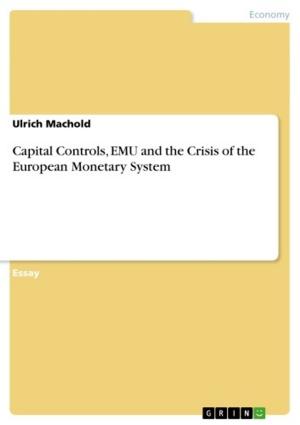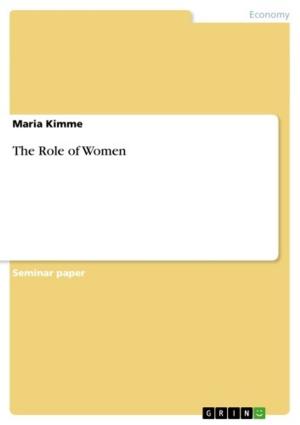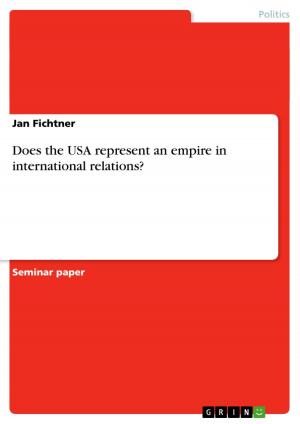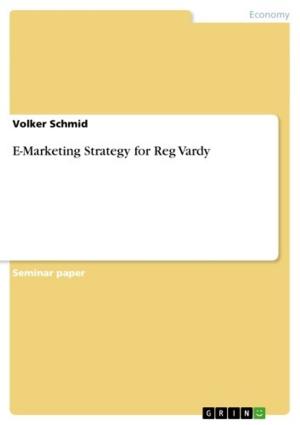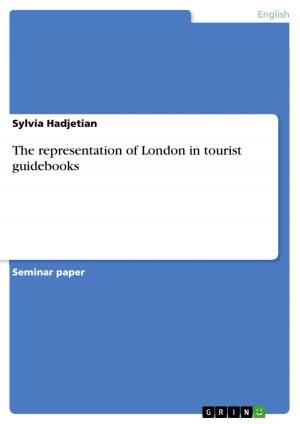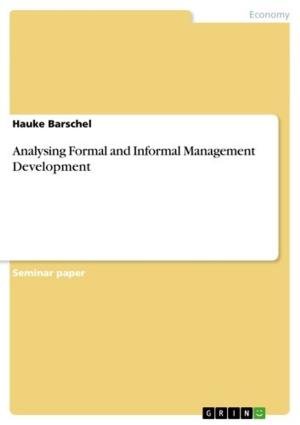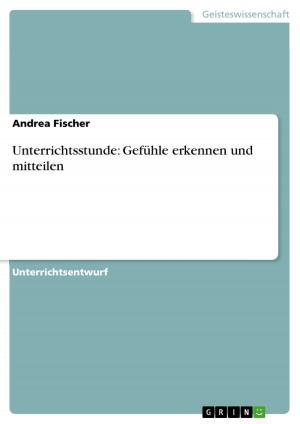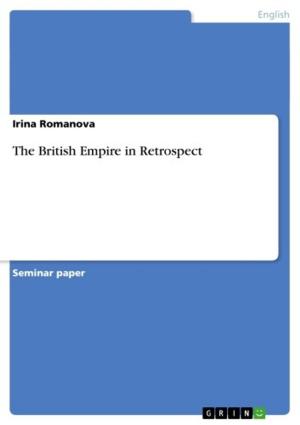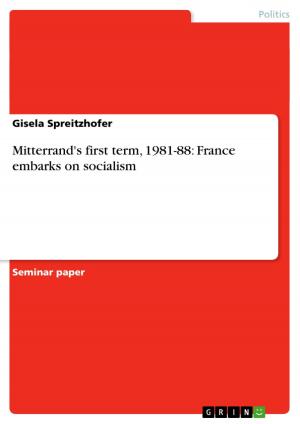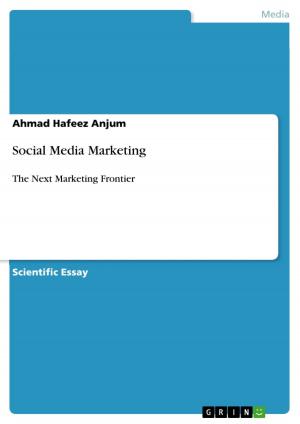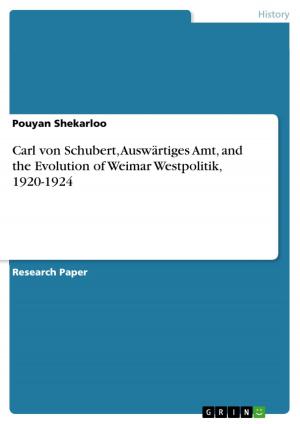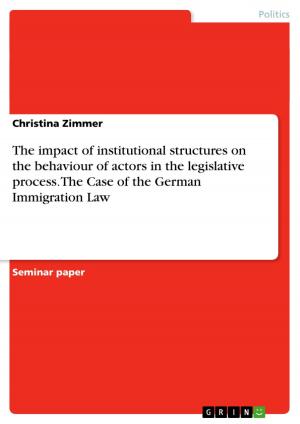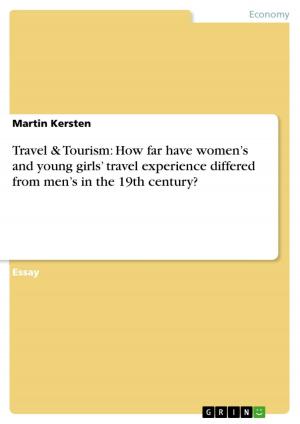Issues in Australian Studies: National Identity
Nonfiction, Social & Cultural Studies, Political Science, International, International Relations| Author: | Annika Onken | ISBN: | 9783640474288 |
| Publisher: | GRIN Publishing | Publication: | November 18, 2009 |
| Imprint: | GRIN Publishing | Language: | English |
| Author: | Annika Onken |
| ISBN: | 9783640474288 |
| Publisher: | GRIN Publishing |
| Publication: | November 18, 2009 |
| Imprint: | GRIN Publishing |
| Language: | English |
Essay from the year 2009 in the subject Politics - International Politics - Region: Australia, New Zealand, grade: 62% pass = deutsche 3, University of Queensland, course: AUST 6100 Masters Level, language: English, abstract: Walter (1992) states in his essay 'Defining Australia' that the question what the 'real' Australia is will never be solved but that there exist and keep arising different ideas about it. These various cultural productions have to be questioned as to who produces them and which purposes they serve. National identity creates unity among people in the sense of Benedict Anderson's 'imagined communities'. Members believe in a set of things about what being Australian includes and excludes. National celebrations as for example Australia Day, the proclamation of Commonwealth or Anzac Day are different media guided events on which Australians are held to feel a 'collective Australian consciousness' (7). Nevertheless, opposing ideas are put under the same national persuasive 'cloche' in order to make differences forgotten. An effective tool to create this nationhood has been myth-making in order to link Australians to a self-picture and 'transcend contemporary divisions' (16).
Essay from the year 2009 in the subject Politics - International Politics - Region: Australia, New Zealand, grade: 62% pass = deutsche 3, University of Queensland, course: AUST 6100 Masters Level, language: English, abstract: Walter (1992) states in his essay 'Defining Australia' that the question what the 'real' Australia is will never be solved but that there exist and keep arising different ideas about it. These various cultural productions have to be questioned as to who produces them and which purposes they serve. National identity creates unity among people in the sense of Benedict Anderson's 'imagined communities'. Members believe in a set of things about what being Australian includes and excludes. National celebrations as for example Australia Day, the proclamation of Commonwealth or Anzac Day are different media guided events on which Australians are held to feel a 'collective Australian consciousness' (7). Nevertheless, opposing ideas are put under the same national persuasive 'cloche' in order to make differences forgotten. An effective tool to create this nationhood has been myth-making in order to link Australians to a self-picture and 'transcend contemporary divisions' (16).

